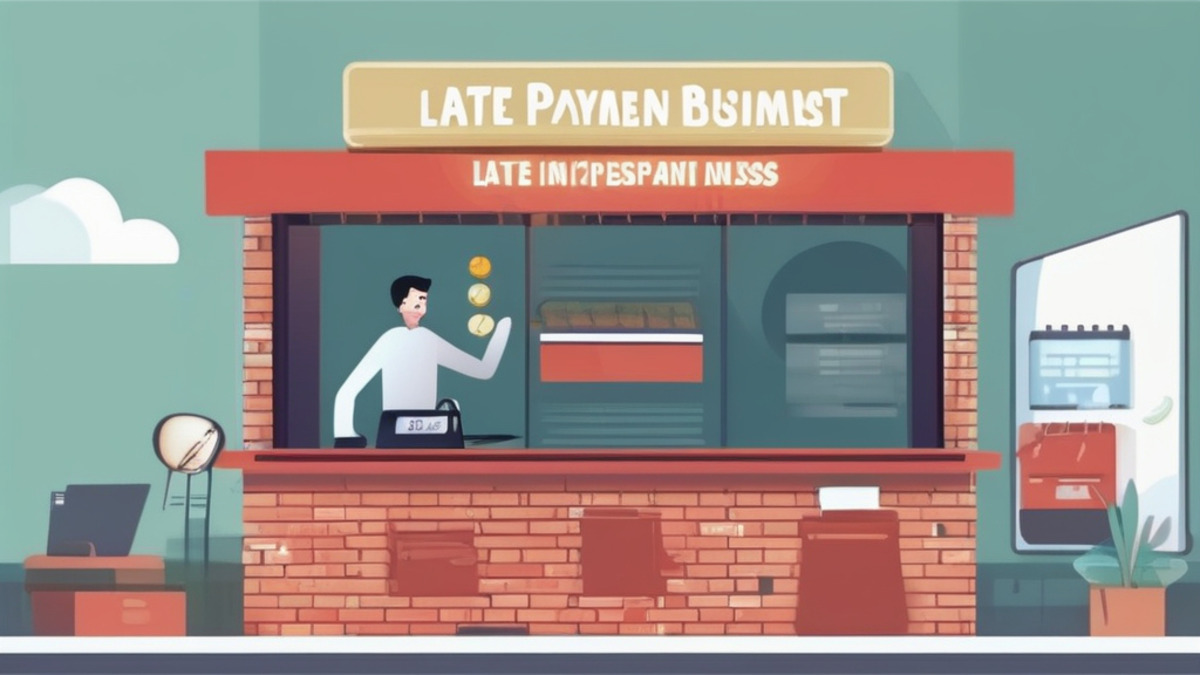A new report from CreditorWatch reveals a concerning trend of rising late payments across multiple industries in Australia.
The survey found that a staggering 92% of construction businesses and 87% of businesses in distribution and business services have experienced overdue invoices in the past year. This issue is affecting companies of all sizes, with 96% of large businesses and 74% of small businesses facing late or overdue payments.
ALSO READ: CreditorWatch offers free tool to combat late payments
CreditorWatch’s August Business Risk Index further highlights this concerning trend. The Index shows the failure rate for Australian businesses currently sits at an average of 4.95 per cent, having increased by 17.3 per cent since January. Business payment defaults have also surged by 68.1 per cent over the past year, reaching record levels. Both measures indicate a rising number of businesses struggling to pay invoices from suppliers. The amount of time a late payment is overdue was consistent across business sizes until the 60-plus days overdue category, where 11 per cent of small businesses reported such delays, compared to just one per cent of medium businesses and six per cent of large businesses. This highlights how larger businesses have more capacity to chase late payments and possess greater bargaining power during contract negotiations.
Strategies to Mitigate Late Payments
CreditorWatch’s Business Sentiment Survey also assessed the strategies businesses are adopting to combat late payments. The most common approaches include ‘avoiding dealing with client/customers with a history of late or overdue payments’ (39 per cent), ‘requiring at least some payment in advance of delivery’ (35 per cent), and ‘imposing a penalty for late or overdue payments’ (28 per cent).
Smaller businesses (25 per cent) and medium-sized businesses (30 per cent) noted having shorter payment terms as another key strategy, while larger businesses highlighted introducing technology to get paid more quickly (38 per cent).
Small (1 to 19 employees)Medium (20 to 199 employees)Large (200+ employees)Avoid dealing with clients/customers with a history of late or overdue payments42%33%41%Requiring at least some payment in advance of delivery34%34%42%Impose a penalty for late or overdue payments24%37%29%Have shorter payment terms25%30%21%Offer a discount for early payments20%31%31%Introduce technology to get paid more quickly13%27%38%Introduce technology to reduce the rate of failed payments10%22%27%Conduct stricter credit checks9%20%24%
Data Source: CreditorWatch Business Sentiment Survey
The biggest challenges businesses face when chasing late payments include ‘not wanting to upset clients/customers’ (35 per cent), ‘concerns that clients/customers will do less business or no longer want to do business’ (34 per cent), and ‘not wanting to be seen as rude’ (26 per cent).
ConstructionDistribution (i.e. Wholesaling, Transportation, Airlines/ airtravel, other travel services)Health & EducationProductionRetail & HospitalityFinancial & InsuranceBusiness/Professional ServicesI don’t want to upset my client/customer37%37%38%28%33%37%39%I’m concerned that they will do less business/no longer do business with us37%44%27%32%27%34%39%I don’t want to be seen as rude24%30%30%22%26%27%25%I find the conversation too uncomfortable/awkward25%24%30%23%19%15%29%I feel intimidated by the client/customer17%14%15%16%9%17%12%I don’t know how to broach the topic12%4%7%6%8%12%11%
Data Source: CreditorWatch Business Sentiment Survey
More businesses are finding it difficult to pay their invoices on time, reflecting growing financial stress across sectors – both for those unable to pay and those awaiting payment. CreditorWatch has identified a strong correlation between B2B payment defaults and business failures. A business with one payment default has a 28 per cent chance of closing in the next 12 months, increasing to 74 per cent for businesses with four or more defaults.
The Construction sector is experiencing the highest incidence of late payments, with 92 per cent of businesses reporting overdue payments in the past 12 months. Distribution and Business Services both followed closely at 87 per cent, Health and Education at 86 per cent, and Financial Services and Insurance at 83 per cent.
In the Distribution sector, eight per cent of businesses reported that more than half of their invoices were overdue, compared to six per cent in Construction. Retail and Hospitality saw the lowest incidence of late payments at 64 per cent.
Distribution was the worst category for payments 30-plus days overdue, with 51 per cent of payments overdue by 30-plus days and 18 per cent by 60-plus days. Other sectors experiencing a high volume of payments overdue by more than 30 days included Business services (36 per cent), Health & Education (38 per cent), and Construction (39 per cent).
CreditorWatch’s CEO, Patrick Coghlan, says the surge in late payments is creating significant strain across sectors, with many businesses struggling to maintain consistent cash flow as overdue invoices pile up.
“Late payments are more than an inconvenience, they’ve become a critical issue for businesses, affecting cash flow and operational stability, and even their long-term survival,” he says.
“This is placing enormous pressure on companies, particularly small and medium-sized enterprises, which often lack the financial buffers, negotiating power and collections capabilities that larger corporations have.”
Keep up to date with our stories on LinkedIn, Twitter, Facebook and Instagram.
A new report from CreditorWatch reveals a significant increase in late payments across Australian businesses. News, late payment Dynamic Business









